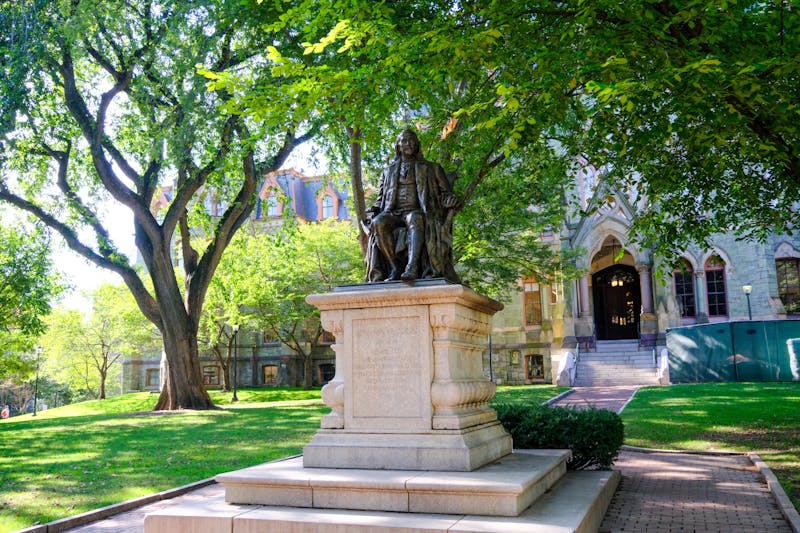
The new CAPS program will begin seeing students in person next week.
Credit: Cindy ChenPenn’s Counseling and Psychological Services will launch its new behavioral health consultant program next week to bridge CAPS and Student Health Service resources.
The program will feature one behavioral health consultant, Heather Charboneau, who will work to streamline communication between CAPS and SHS and better serve students' specific needs. Chief Wellness Officer Benoit Dubé said that CAPS and SHS providers will both be able to call on Charboneau whenever they deem that a more holistic consultation is needed for a specific student.
Charboneau said she assumed her position as the behavioral health consultant in January to ensure the program will "run like a well-oiled machine" but will begin seeing students in person next week.
“[The behavioral health consultant] is a bridge from the medical providers to the behavioral world," CAPS Senior Clinical Director Michal Saraf said.
The behavioral health consultant program is the second of CAPS’ two initiatives adopted this academic year to better “meet students where they are, whenever they need us,” Dubé said. The first program, Let’s Talk, was introduced in October 2019. The program was envisioned by former CAPS Executive Director Gregory Eells, who died by suicide in September 2019.
The Let’s Talk program features five CAPS counselors who circulate between several locations including the LGBT Center, the ARCH building, Van Pelt Library, the Greenfield Intercultural Center, and the Graduate Student Center for a few hours each day from Monday to Friday, according to CAPS Associate Director of Outreach and Prevention Services Batsirai Bvunzawabaya. Unlike a regular drop-in appointment at CAPS, students are not asked to complete an extensive questionnaire.
Charboneau said that each student’s consultation will vary greatly depending on their current situation. She added that a student she might see is one who seems to have symptoms related to their mental health but does not want to seek further services beyond their primary care provider.
“I would dive into what is holding the student back, what are the potential barriers, or if there is a stigma around mental health, and trying to find a solution that best fits that student’s need," Charboneau said.
Charboneau also said that, in some cases, she may only meet with a student once or twice if the situation is more immediate and that is all the student needs to cope successfully.
Before being hired for CAPS’ behavioral health consultant program, Charboneau said she worked at Community Behavioral Health in Philadelphia on an integrated healthcare team with both behavioral and mental health care. She also worked at Penn Medicine with patients who had been admitted multiple times due to mental health or environmental stressors.
"The big picture, overarching all of the things we do, is our goal of trying to take a more integrated and holistic approach to student health and that will also drive future initiatives," Dubé said.
The Daily Pennsylvanian is an independent, student-run newspaper. Please consider making a donation to support the coverage that shapes the University. Your generosity ensures a future of strong journalism at Penn.
Donate






